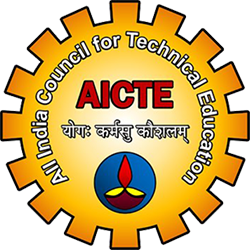
Modern society is characterised by globalisation, which makes logistics and supply chain management relevant today more than ever. In recent years, any company’s globalisation has led to the growth of supply chain management across all industries and has made this process much more challenging. PGDM with Supply Chain (SC) and Logistics Management (LM) prepares its students for a highly fluid market and the potential for numerous exciting and lucrative opportunities.
Logistics and Supply Chain Management: A Comprehensive Overview
No company that deals with products or services can afford to disregard this. It ensures proper coordination of production, transportation and distribution to ensure that the product gets to the consumer at the least cost possible. The process ranges from purchasing raw materials to the acquisition of transport and delivery of the final products. It also involves management of the supply chain relationships.
This industry also requires professionals who specialise in e-commerce, globalisation and technology. A PGDM in this specialisation is necessary because companies need someone who will streamline operations, reduce costs and increase customer satisfaction.
Diverse Career Paths in Supply Chain and Logistics Management
PGDM with supply chain and logistics management has plenty of job opportunities in numerous industries, such as pharmaceuticals, retail, e-commerce and manufacturing. Below is a list of some of the most significant job options available to graduates:
1. Supply Chain Manager: The supply chain manager is responsible for all activities in the purchasing process, procurement of all materials, distribution of products and delivering end products to the users. They work closely with manufacturers and suppliers to ensure that the supply chain is properly managed and is speedy. Their roles revolve around enhancing organisational performance through the formulation of coherent plans with risks and the streamlining of processes.
2. Logistics Manager: Transporting and warehousing products are the primary objectives of logistics administrators. Their ability to coordinate the movements of suppliers and consumers is another factor that ensures efficient, cost-effective and timely supply of products. They are responsible for inventory management, transportation, warehousing and distribution networks. Logistics managers ensure that items arrive on time, manage expenses and optimise routes.
3. Procurement Manager: The procurement manager is accountable for procuring the organisation's essential supplies, services and finished products. They maintain collaboration with suppliers in contract negotiations, quality assurance and cost management. They are critical for maintaining supply chain efficiency by reducing interruptions and ensuring service of dependable suppliers.
4. Inventory Manager: One of the inventory manager’s roles is to ensure that there is a continuous flow of the right stock balance in and out of the company. Inventory controller is the person who is assigned the task of tracking inventory and planning for and facilitating storage and withdrawal of goods. Effective stock flow control can help avoid stock-outs and overstocking, which are both costly for a business’s financial performance.
5. Operations Manager: As one of the strategic business functions, the operation manager is expected to manage the manufacturing in the company. They ensure that the efficiency of the industry is at the optimum level with regards to cost and time. They are responsible for guiding the processes and managing costs and for seeking methods for increasing productivity at optimal costs. Another distinctive task of operations managers is to ensure that the supply chain is in sync with the strategic vision of the firm.
6. Supply Chain Analyst: Supply chain analyst works on the general tasks of dissecting and enhancing the performance of a supply chain. They identify problems, analyse trends and are able to develop solution strategies. Their knowledge helps corporations reduce costs, make correct decisions and meet the consumers’ needs more effectively. Supply chain analysts are becoming increasingly necessary due to rising emphasis on accurate decision making, based on supply chain data.
Conclusion
Sparsh Global Business School offers a PGDM with a Supply Chain and Logistics Management specialisation, which can lead to a variety of rewarding careers in different fields. Graduates have a wide range of career options, including supply chain and logistics management, operations optimisation, and data analysis. The faculty at Sparsh Global Business School work hard to give their students a distinct advantage when they enter the workforce. A career in supply chain management is promising, as the need for qualified workers will only grow as companies adapt and develop.
FAQ’s
1. Why is demand for supply chain and logistics expertise rising?
Globalisation, e-commerce, technology and supply chain complexity boost demand. This is a viable career option since companies require qualified experts to simplify processes, cut expenses and increase customer satisfaction.



